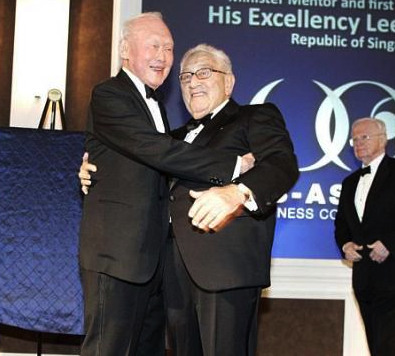This process started for me when Lee visited Harvard in 1967 shortly after becoming prime minister of an independent Singapore. Lee began a meeting with the senior faculty of the School of Public Administration (now the Kennedy School) by inviting comments on the Vietnam War. The faculty, of which I was one dissenting member, was divided primarily on the question of whether President Lyndon Johnson was a war criminal or a psychopath. Lee responded, “You make me sick” — not because he embraced war in a personal sense but because the independence and prosperity of his country depended on the fortitude, unity and resolve of the United States. Singapore was not asking the United States to do something that Singapore would not undertake to the maximum of its ability. But U.S. leadership was needed to supplement and create a framework for order in the world.
Lee elaborated on these themes in the hundreds of encounters I had with him during international conferences, study groups, board meetings, face-to-face discussions and visits at each other’s homes over 45 years. He did not exhort; he was never emotional; he was not a Cold Warrior; he was a pilgrim in quest of world order and responsible leadership. He understood the relevance of China and its looming potential and often contributed to the enlightenment of the world on this subject. But in the end, he insisted that without the United States there could be no stability.
Lee’s domestic methods fell short of the prescriptions of current U.S. constitutional theory. But so, in fairness, did the democracy of Thomas Jefferson’s time, with its limited franchise, property qualifications for voting and slavery. This is not the occasion to debate what other options were available. Had Singapore chosen the road of its critics, it might well have collapsed among its ethnic groups, as the example of Syria teaches today. Whether the structures essential for the early decades of Singapore’s independent existence were unnecessarily prolonged can be the subject of another discussion.
-Henry Kissinger on outliving another close personal friend/world-historical monster
